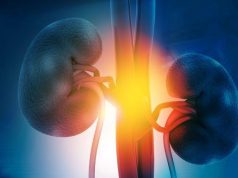Among patients undergoing bariatric surgery, only those with gastric bypass had increased incidence of nonalcohol substance use disorder
By Elana Gotkine HealthDay Reporter
MONDAY, Aug. 14, 2023 (HealthDay News) — For individuals with obesity, gastric bypass surgery is associated with an increased risk for nonalcohol substance use disorder (SUD), according to a study published online July 21 in Obesity.
Per-Arne Svensson, Ph.D., from Sahlgrenska Academy at the University of Gothenburg in Sweden, and colleagues conducted a prospective study enrolling 2,010 patients with obesity who underwent bariatric surgery (265 gastric bypass, 1,369 vertical banded gastroplasty, and 376 gastric banding) and 2,037 matched controls receiving usual obesity care. Participants with SUD other than alcohol use disorder were identified; those with a history of nonalcohol SUD were excluded.
The researchers found that during a median follow-up of 23.8 years, nonalcohol SUD incidence rates were 1.6, 0.8, 1.1, and 0.6 per 1,000 person-years for gastric bypass, vertical banded gastroplasty, gastric banding, and control individuals, respectively. Compared with controls, only those with gastric bypass had a significantly increased incidence of nonalcohol SUD (adjusted hazard ratio, 2.54).
“Patients treated with gastric bypass have an elevated risk of nonalcohol SUD,” the authors write. “Pre- and postoperative care of these patients should include assessment of the risk of substance abuse that extends beyond alcohol abuse.”
Abstract/Full Text (subscription or payment may be required)
Copyright © 2023 HealthDay. All rights reserved.








